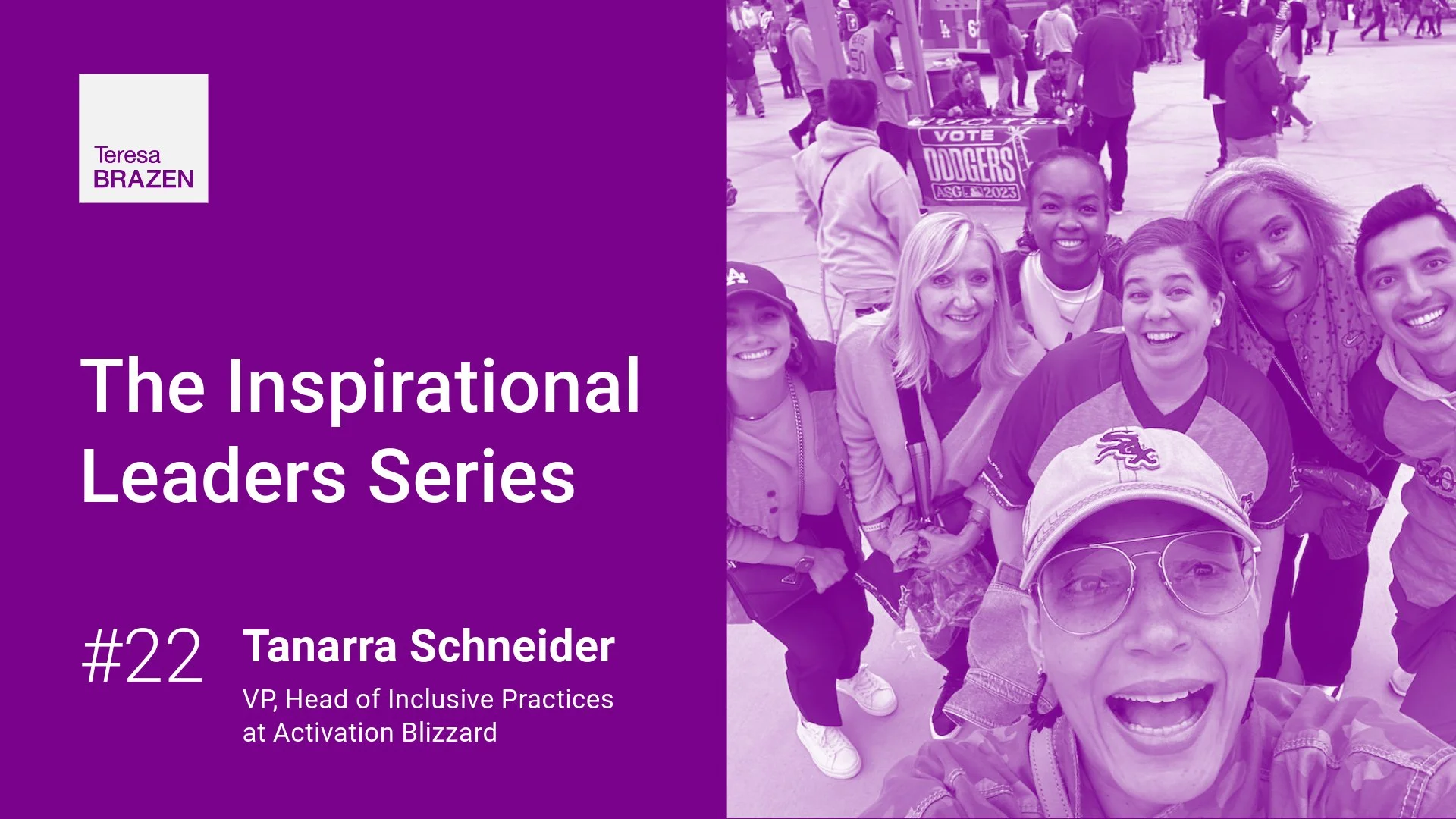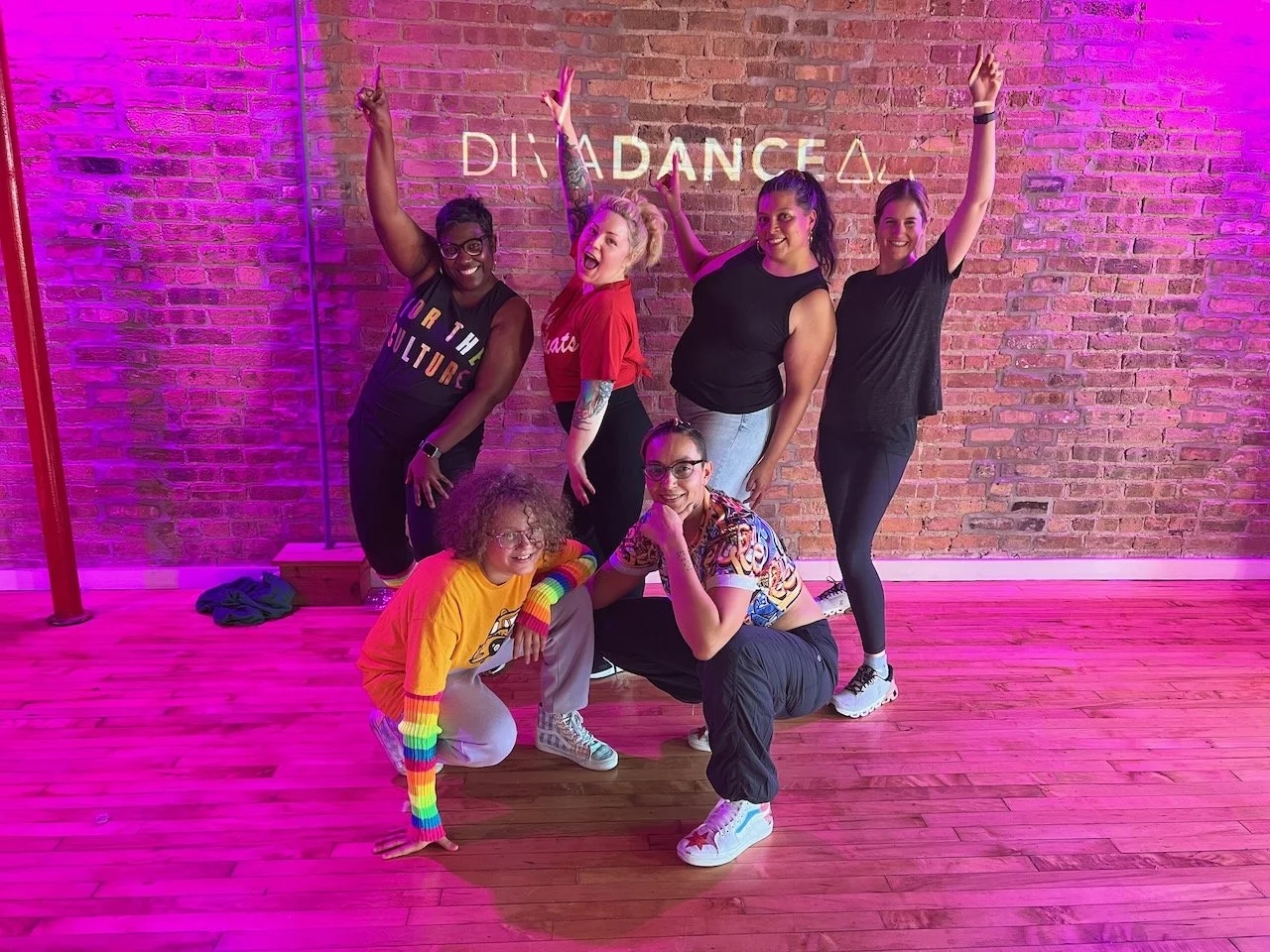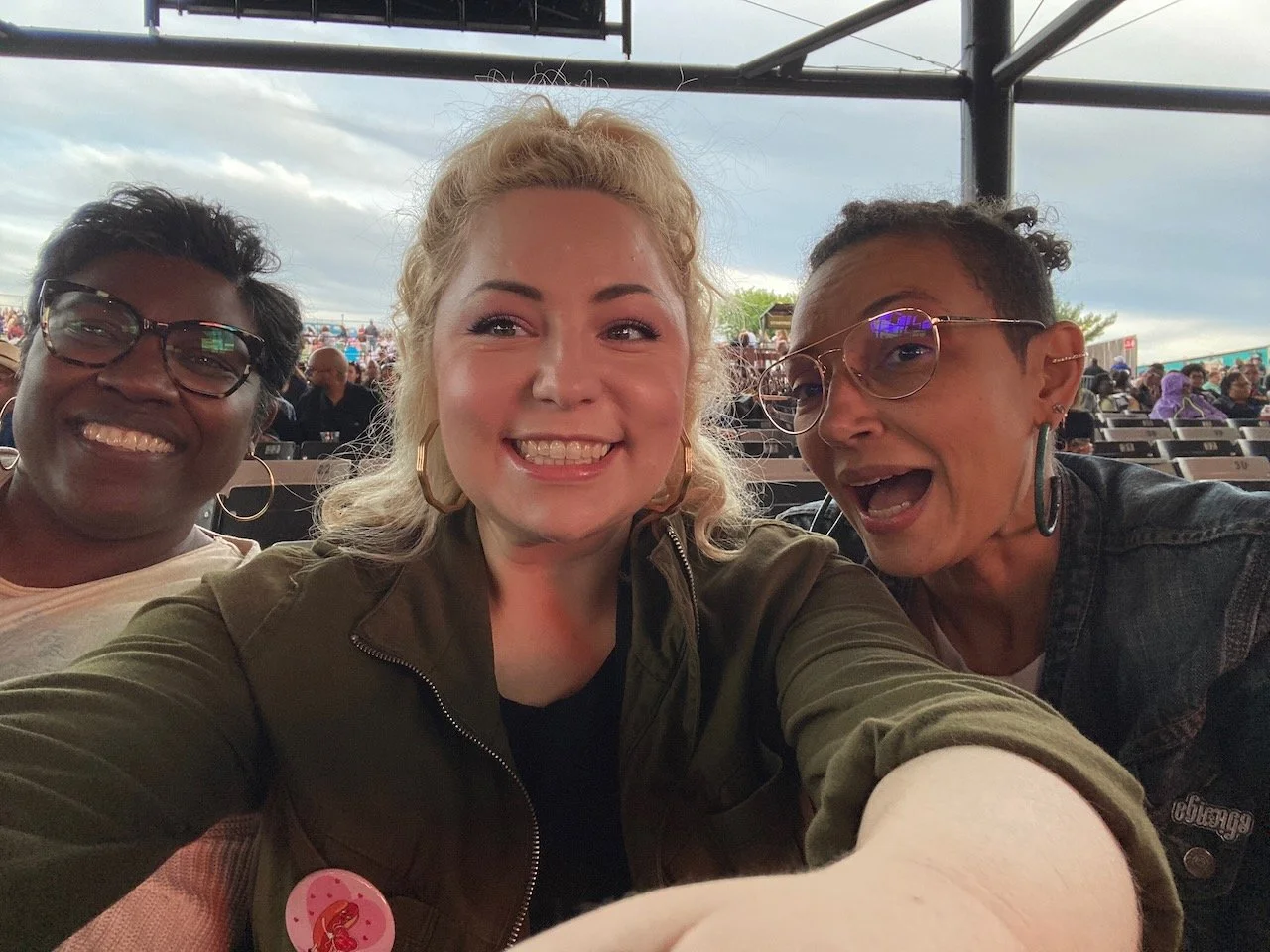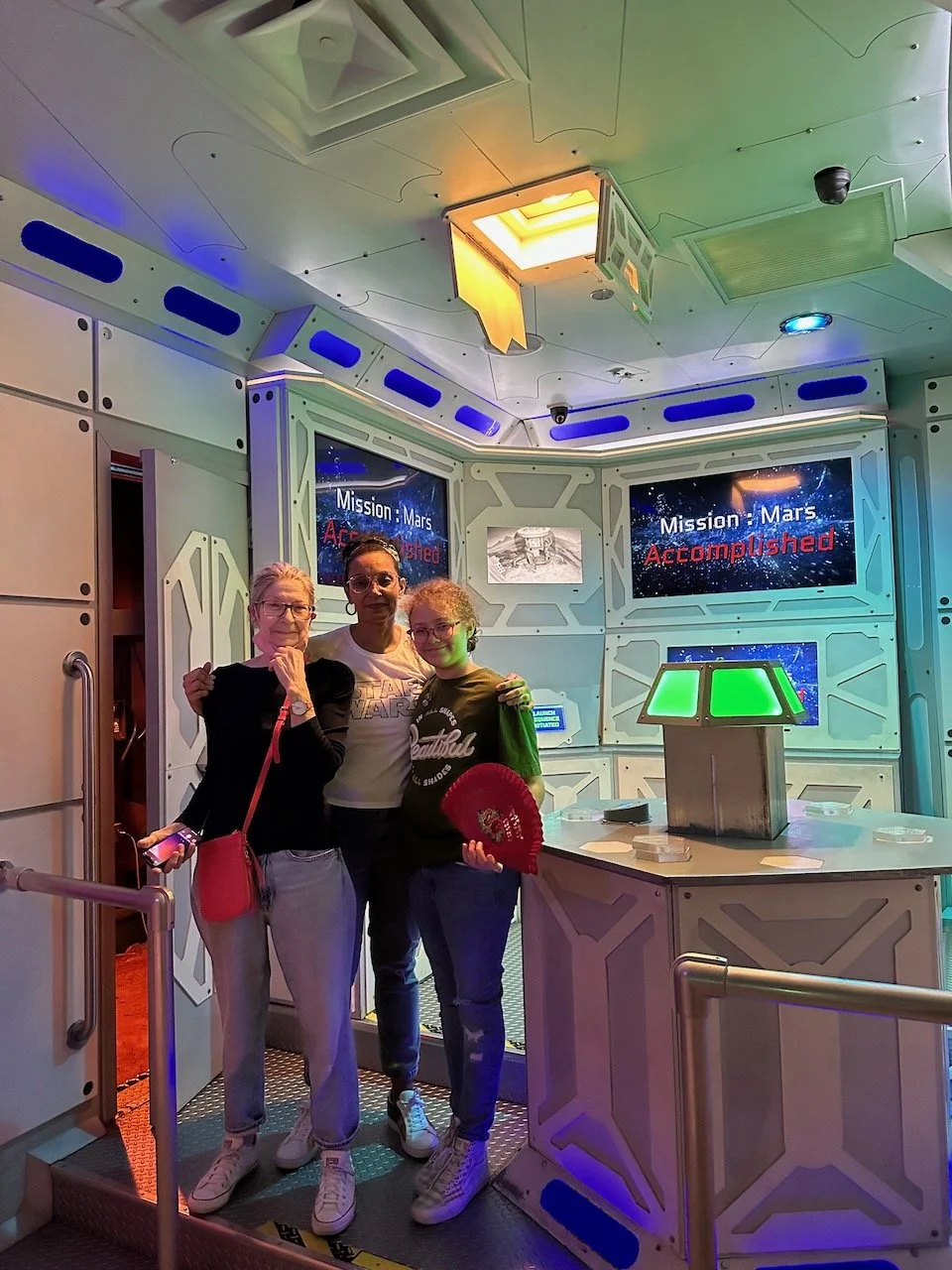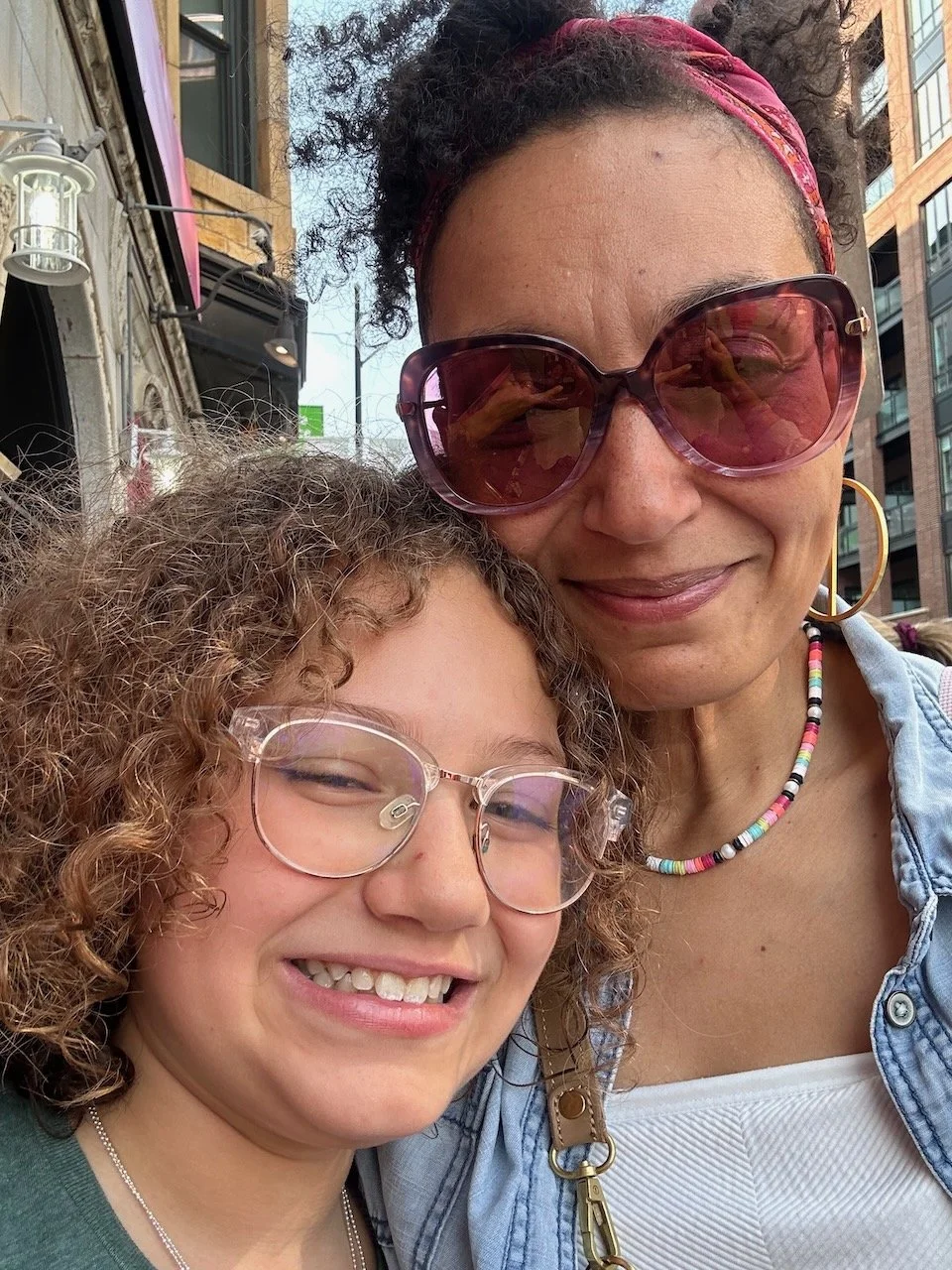“Inclusivity in an organization means we bring the skills we have to do the work that needs to be done, and we are here because of that, not in spite of that. It's the ability to contribute to this place every single day because of who I am, and to be valued for that, without the expectation of conformity.” - Tanarra Schneider
Welcome to the Inspirational Leaders Series, a collection of short interviews with sharp, impactful leaders that I know and respect—because the business world needs more refreshing people like them.
Meet Tannara Schneider: VP, Head of Inclusive Practices at Activision Blizzard. She has a wide range of user experience strategy, service design, organizational transformation, and development and learning design experience. And she's using those skills to change the experience of work.
(Note: This interview has been lightly edited for length and clarity.)
CAN YOU THINK OF A PARTICULAR TIME OR EXPERIENCE THAT HAS INSTRUCTED AND SHAPED THE WAY THAT YOU LEAD TODAY?
One that stands out is actually having to fire or lay people off. Unfortunately — because of joining a big consulting company, spending time in a market that shifted multiple times, the pandemic, but also the changing nature of work — I have had to lay people off five or six times in the last decade. It really changed the way I lead day to day. What I realized was that a lot of people lose their jobs or are shifted in organizations because of things that are surprising to them. I think that's fundamentally unfair.
We can give people feedback, coach along the way, truly be observant leaders — but also be humble, vulnerable, and empathetic when we give that feedback, especially when it's challenging. And it's really necessary. Those moments of having to let people go were really formative for me.
I loved your use of the word observant leadership. Tell me more about that.
It can be really difficult to stay close to work and to individuals, especially as your responsibility grows in an organization. I came into my last job at Accenture as a team leader more so than anything else. I had a fairly small team; it was manageable, but my responsibilities grew.
As somebody who was leading a design organization, I had to be observant about two things: the individuals and how they interacted and then the work itself, what we were really creating. Even if it's just in a staff meeting or a moment of watching two people interact in a casual setting, you can begin to understand how folks come [to] their work, and approach colleague relationships. Especially when there's a virtual environment, you really have to be observant. Who's participating? Who's listening? You can sit back and observe as a leader, and not always be at the forefront of the conversation.
I'm also interested in the building blocks of your leadership approach. Do any of your personal values shape the way you lead?
A big one for me is agency, or empowerment. A lot of times I see it misused; we say “empower others,” or “empowered team members.” People think that is like, “I gave you the thing, go do it.” That's not what it's meant for me.
When I think about my team, and how I create the environment where they can do things, I trust them. Even if it goes sideways, they are trusted to make good decisions, to go out and do their absolute best, and to come back and share what they learned. For me, empowerment is “I know you have the skills and, for the things you don't know, it is okay to learn along the way.”
I have no desire to babysit anybody all day long. I don't do it with my 10 year old; I'm not going to do it with my team. I trust her to have really great judgment; I trust them to go out and get something done. So that's two pillars: empowerment and trust.
I think sometimes as leaders, we forget that I'm not responsible for your entire career, for every minute of your day. That requires you as an individual to have agency. I'm here to support and to grow you and to make sure you know that I'm in your corner.
You've told me you're out to make work environments healthier, more human centered, and inclusive, which can sound a little bit like word salad unless you know what it means. So, I'm interested in what that means for you, and why it matters.
This is a particularly interesting journey I've been on my entire career. The role I have now is the culmination of so many things I've done and tried to do. Starting with inclusivity in an organization (I don't want anybody to mistake that for global inclusivity): Inclusivity means we bring the skills we have to do the work that needs to be done, and we are here because of that, not in spite of that. It's the ability to contribute to this place every single day because of who I am, and to be valued for that, without the expectation of conformity.
Let's value one another for the skills we bring, even when we disagree. Even if you and I don't believe the same things, that's okay. That creative tension that can be there, if we know that I come at this from a different place than you do, so let me be curious and learn.
That creates healthy organizations writ large, but it starts with leadership that knows how to lead, demonstrate trust, empower, and create agency — but also how to hold tension around a respectful work environment where we get to express our views. For me, it's about designing a system that supports all of us to do a job without expecting us to not be the person we were when we walk through the door or the person we're going to be when we leave at five o'clock.
The thing underpinning that sounds like psychological safety, like you can voice something and it can be disagreed with.
You can be curious about other people, right? If you and I come at a subject from fundamentally different lived experiences, it is okay to say, “Tell me more about why you see it that way. Because that's not how I see it.” It's about giving people the mechanisms to navigate relationships that can feel really challenging. That creative tension, the ability to give critique, is critical to what we do. And if we can't hold that, everything becomes very boring, and people are placating one another. Creativity is a huge part of our work environment. It needs to be, but it won't be there if we can't find that psychological safety and basis of respect.
So you talked about psychological safety as a piece of cultivating creativity. What else do you think is important to really cultivate creativity in teams?
Expectation setting. Creativity thrives in different spaces — not always when we're jammed in a room together, trying to brainstorm. You have to create space for people to kind of stew in ideas. We set expectations up front around a couple of things.
How do you work?
What do you need to feel really confident in your decisions?
Do you need time to digest?
Are you somebody who likes to riff together and then go away?
Understanding how people work is a fantastic tool for creating empathy, because a lot of us will assume everybody works the way we do.
[For example,] we've got a project we're working on together, we've got a two week deadline, and we know we've got a couple key players who really need some time to digest. You need to get them the information upfront, so they have time to digest and your deadline’s not impacted. We can set healthy expectations as a team, so that we're not second guessing.
We do a lot of assuming in the workplace, right? If we can start vocalizing (How are we going to work together? What do we do when something's not going well? How do we celebrate?), those pieces of the puzzle sometimes even informally create a lot of bandwidth for the work that needs to be done.
What would the Tannara of today tell the Tannara of 10-15 years ago?
I would have told her, “You didn't get here by mistake.” I was put in leadership roles really early in my career, and I always assumed it was a fluke, like somebody made a mistake. The truth is I have been leading things since I was a kid, as the de facto onstage leader in my dance company. So I think I would just tell her, “Just own it. It's okay.”
Anything in particular that helped you to shift to owning that?
Three or four years into my career, it started to become a pattern. I left the corporate world, did something else, and came back into it, and the same thing started happening again, I was like, “This is not something that's happening to you; you’re volunteering yourself, you're taking on responsibility, not just for yourself, but for other people.” Eventually, I realized that's actually the thing I'm really good at. There are better designers out there. There are better strategists out there. I'm really good at pulling all these things together and helping other people be their best. And I pride myself on that.

